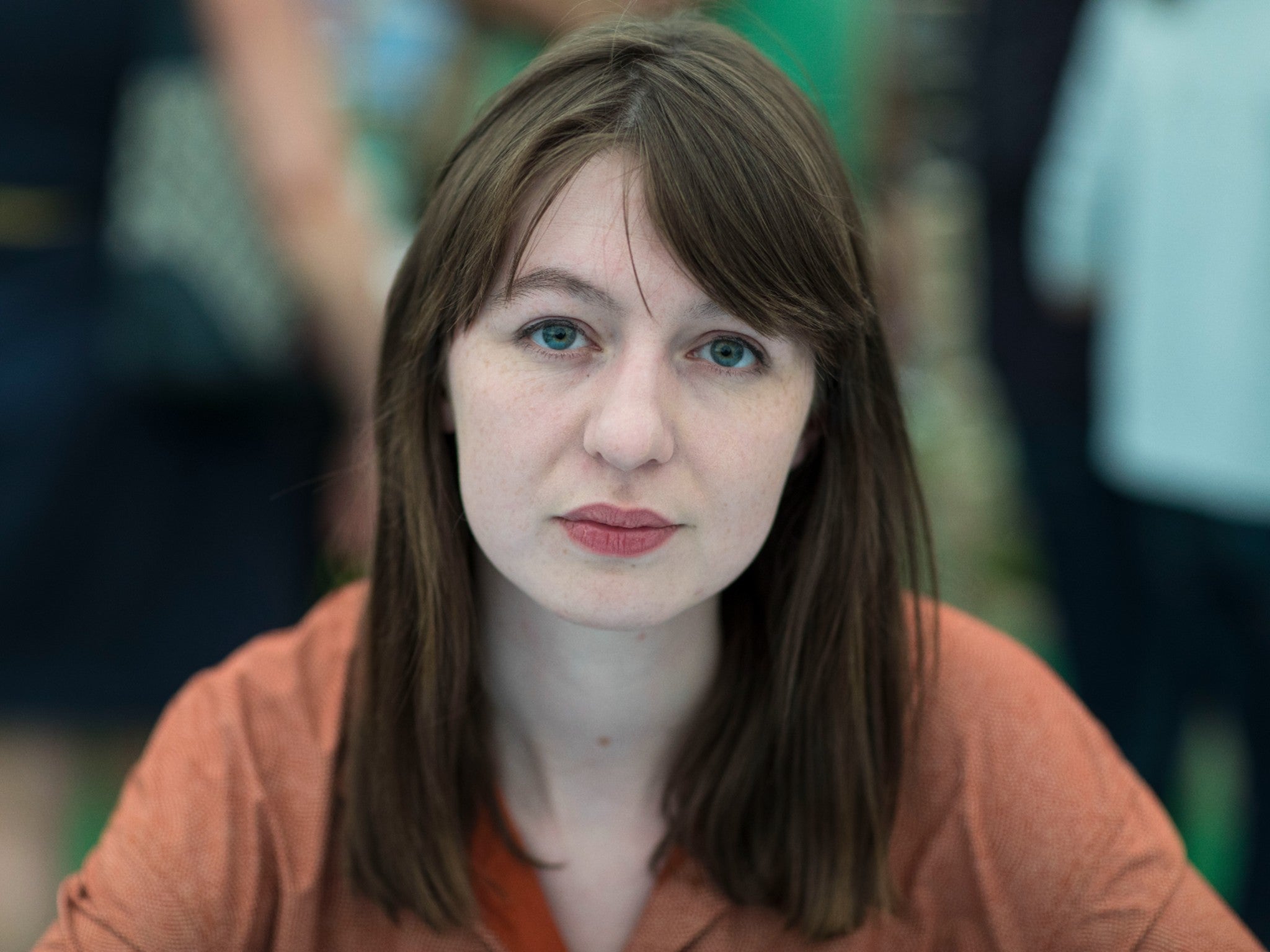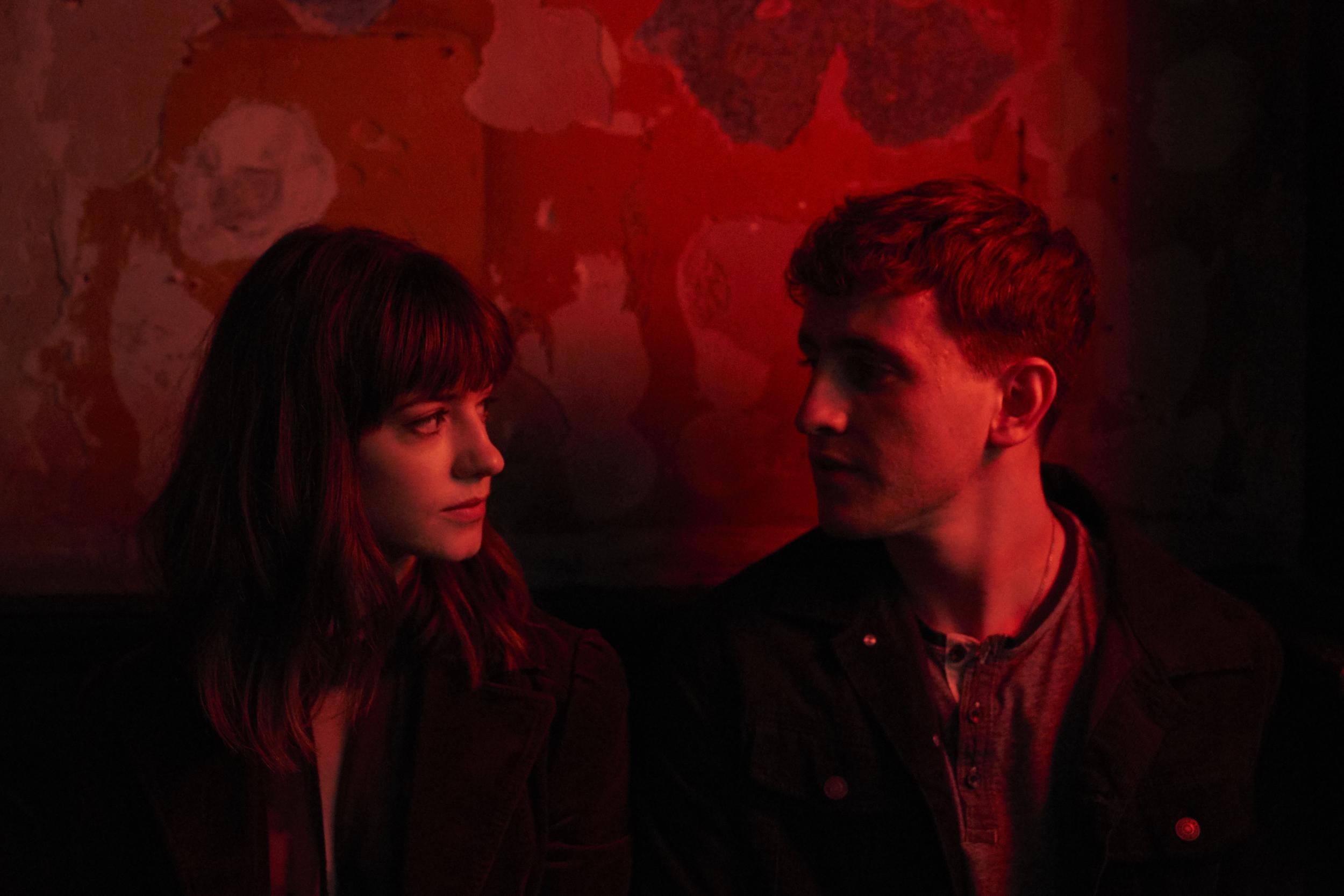Sally Rooney’s unplugging from celebrity can’t stop the fame train
The response to the Irish novelist’s ‘Beautiful World, Where Are You’ has prompted comparisons with Harry Potter. The author has backed away from Rooneymania but, says Elise Bell, it’s difficult to avoid stardom when your talent does all the talking


It’s 2013, and eight twentysomethings, suitably armoured in suits and black ties, are ready for a war of words, battling it out beneath fluorescent white lights in an oak-panelled auditorium in Manchester. Using big words, witty asides, and rhetoric so fast it makes your head spin, one by one the eight take to the lectern, tongues lashing in earnest passion about the right to vote, the right to test people for their right to vote, and the right to take away the right to vote. Of all the eight, one stands out. As a hush descends, a voice calls the name of the fourth speaker. Confident, and ready to win, a 22-year-old Sally Rooney makes her way to the centre. The audience is clamouring, the cheers louder for her than for any other speaker. A chant begins to break out: “Rooney, Rooney, Rooney”. After reaching a crescendo, it takes a minute or so for the audience to settle. And then she starts to speak.
In a 2015 edition of The Dublin Review, Rooney’s essay “Even If You Beat Me” sheds light on her experience as the No 1 student debater in Europe, first as she rose through the ranks as an awkward undergraduate eager for community, and then as a disillusioned former champion. Shuttling from glamorous airport hotel to glamorous airport hotel as she coaches the next generation from the classrooms of elite schools across the world, Rooney recalls the sensation of winning: “You feel just like I imagine a pool shark must. Complex things become simple.” It’s an upwards trajectory that, after a while, becomes too easy; “Personally,” Rooney says, “I didn’t cope very well with all the affirmation.” Watching the grainy footage of that 2013 debate, held in Manchester as part of the European Universities Debating Championships, you’d be hard-pressed to recognise Rooney’s unease.
Perhaps the reason for this essay’s prominence is the unique insight it gives into an author who has for years now kept the public at arm’s length. Much as in the debating world, Rooney’s ascent from young, debut author to household-name novelist has been as fast as it is steep, with her third novel, Beautiful World, Where Are You, predicted to be easily the biggest launch of 2021. It’s a frenzy that is rare to behold: such is the intensity of Rooneymania that bookshops across the country are changing their opening hours, with doors opening at 8.30am to account for the round-the-corner queues of fans waiting for their signed copies and token yellow bucket hats. The mass hype surrounding Rooney’s third novel is reminiscent of the earlier, proto-social-media era of Twilight and Harry Potter, its readers graduating from Facebook pages and Tumblr blogs to Instagram and Twitter discourse.
Yet since the publication of Conversations with Friends and Normal People, Rooney has shied away from the allure of literary celebrity, deleting her Twitter account and with it a direct line to her readership. It’s a complicated dynamic, with Rooney’s increase in fame happening in parallel with her decision to opt out of the public sphere.

Rooney’s own relationship with fame is remarkably similar to that of Alice, one of the two protagonists of Beautiful World, Where Are You. Like Rooney, Alice is a successful Irish novelist. Like Rooney, Alice finds affirmation – or the fame and social status that comes with professional affirmation – complex, writing in an email to her confidante Eileen that “people who, after a little taste of fame, want more and more of it – are, and I honestly believe it, deeply psychologically ill”. Personal fulfilment in spite of the trappings of fame or capitalism is a theme repeated in the novel, with Alice and underpaid literary editor Eileen swapping 1500-word emails on their lives, loves and politics. Musings on the nature of single-use plastics, workers’ rights, and the dystopia of modern society sit comfortably alongside questions on the role of the author and the separation of life and fiction. “What do the books gain by being attached to me, my mannerisms in all their demoralising specificity ... [it] contributes nothing to the public interest, satisfies only the basest and most prurient of curiosities and serves to arrange literary discourse entirely around the domineering figure of ‘the author’.” In the not-so-beautiful world of Alice, the problem of fame carries the same weight and sense of urgency as climate collapse. Even the famous are victims under capitalism.
It is curious, then, to consider the novel in its current context. As I write, Beautiful World, Where Are You sits at number one on the Amazon bestseller list. Uncorrected proof copies have been selling for several hundred dollars on sites such as eBay, and despite a mixed critical reception, no empty seats could be found at the Southbank Centre’s exclusive “In Conversation” between Rooney and fellow Irishwoman Emma Dabiri, author of What White People Can Do Next. Look at the audience demographics, with the Southbank’s Queen Elizabeth Hall a sea of tote bags and designer smock dresses, and it is easy for critics to claim Rooney as just a novelist for millennials. But the numbers don’t stack up. Hundreds of thousands of sold copies across the world do not come from a millennial readership alone. If you were one of those people forced to watch Normal People with your lockdown-sheltering adult children, who claim ownership of Rooney, you’ll know what I’m talking about.
Indeed, the crises shared by the characters in Rooney’s novels are not solely millennial fodder. In front of a captive audience of almost 1,000, Rooney was unafraid to speak frankly about the world from her perspective, duly poring over the great moral questions of our age. On class: “If we view the working class as a minority, we miss the fact that we’re all workers providing labour so a small number of people can reap the rewards.” On cancel culture: “What is real remorse, real forgiveness, when we live in a time of manufactured PR apologies that are completely cynical?” Though an hour and a half at the Southbank can’t provide the resolutions the world is looking for, Rooney points to her books not as answers to questions on race, class or culture, but instead as earnest depictions of the kinds of conversations people are having today: “I think one of the things a novelist is trying to do is to actually capture the way people really talk and relate to one another.”

Even if Rooney has confessed to needing time away from discourse, unplugging herself from “online life” so entirely that her social media pages were accidentally deleted, it is hard not to sense that we’re witnessing the rise of a key voice for an online generation, empathising with much-experienced anxieties – the kind that revolve around phone screens, dating apps, and imminent climate catastrophe. To put it simply, it’s difficult to avoid stardom when you’re very good at the very public job that you do.
In one of only a handful of interviews provided during the press campaign for Beautiful World, Where Are You, Rooney makes clear that although she is entirely separate from Alice, they share the same disdain for fame. Speaking to The Guardian’s Emma Brockes, she says: “A person could stop doing whatever it is they’re good at, in order to be allowed to retire from public life, but that seems to me like a big sacrifice on their part and an exercise in cultural self-destruction for the rest of us, forcing talented people either to endure hell or keep their talents to themselves.”
Regardless of Rooney’s relationship with fame, Beautiful World, Where Are You is already a bestseller, the machine around these novels now so large that they generate their own gravitational pull. As the crowd stood up at the Southbank, the ring of a standing ovation echoing through the stalls, it was hard not to be reminded of a smaller, quieter Rooneymania happening in a university debating hall some eight years previously. After reading Beautiful World, Where Are You, I’m not sure the affirmation has become easier to endure.
‘Beautiful World, Where Are You’ is out now
Subscribe to Independent Premium to bookmark this article
Want to bookmark your favourite articles and stories to read or reference later? Start your Independent Premium subscription today.



Join our commenting forum
Join thought-provoking conversations, follow other Independent readers and see their replies
Comments